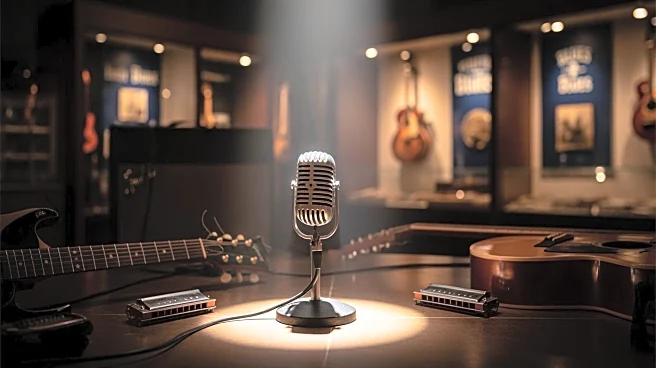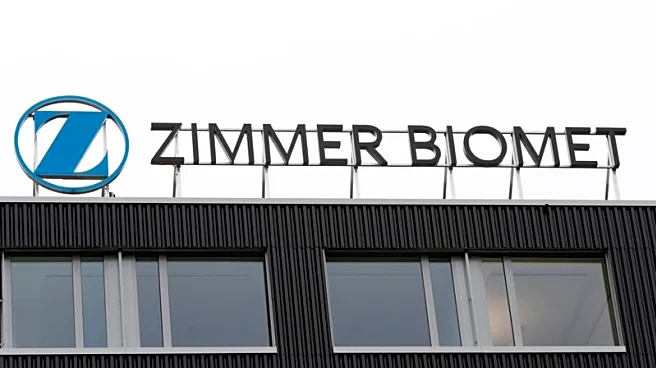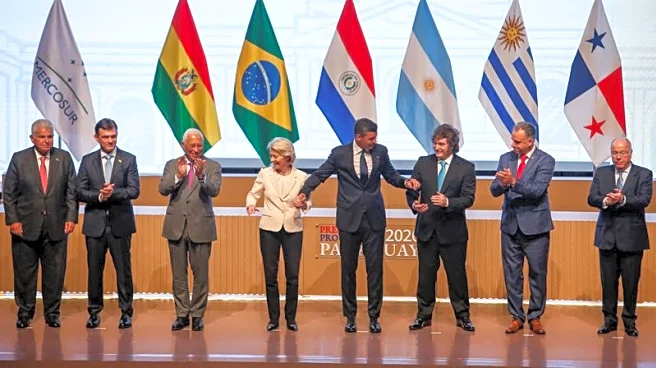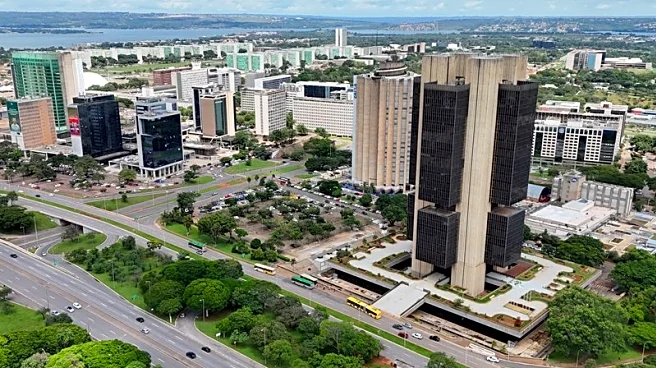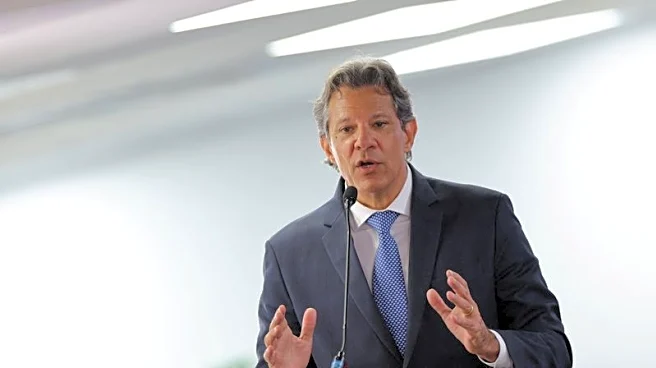What's Happening?
Antone's, a renowned music venue in Austin, has announced a 50-year lease extension for its Downtown location, alongside plans to establish a blues museum. Co-owner Will Bridges and his team are committed
to preserving the venue's legacy, which has been a staple in Austin's music scene for half a century. The lease extension was facilitated by Rally Austin's Iconic Venue Fund, which supports cultural landmarks in the city. The museum, set to open in 2027, will showcase the history of blues music and Austin's live music scene, featuring memorabilia from notable musicians. This initiative aims to ensure Antone's remains a beacon for blues music and cultural investment in Austin.
Why It's Important?
The lease extension and museum project are significant for Austin's cultural landscape, as they reinforce the city's reputation as the 'Live Music Capital of the World.' By securing long-term stability, Antone's can continue to nurture emerging blues artists and preserve the rich history of the genre. This move also highlights the importance of cultural investment in urban development, ensuring that historical venues are not overshadowed by commercial interests. The museum will serve as an educational resource, attracting tourists and music enthusiasts, thereby contributing to the local economy and cultural heritage.
What's Next?
With the lease secured, Antone's will focus on developing the museum, which is expected to open in 2027. The venue plans to collaborate with historians and experts to curate exhibits that capture the essence of blues music and its impact on Austin's music scene. The museum will feature iconic items such as stage-worn suits and original records, offering visitors a glimpse into the history and evolution of blues music. As Antone's transitions into this new era, it will continue to host live performances, supporting both established and emerging artists.
Beyond the Headlines
The establishment of the museum at Antone's not only preserves the venue's legacy but also raises awareness about the cultural significance of blues music. It underscores the role of music venues in shaping community identity and fostering artistic expression. This initiative may inspire other cities to invest in preserving their cultural landmarks, recognizing the value of music and arts in urban development. Additionally, the museum could become a hub for cultural exchange, promoting diversity and inclusivity within the music industry.
